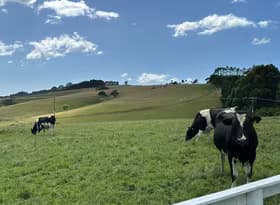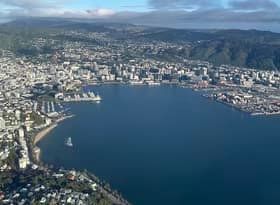Where will your workforce be living in 2020?
At the 2014 Global Leadership Summit, a third of the executives, entrepreneurs and business academics gathered in London predicted that more than 50% their company’s full-time workforce would be working remotely by 2020. That’s only 3 years away.
Not only does Infometrics believe that this signals a significant change in the way New Zealand’s future workforce may potentially be structured, but we have embraced this trend wholeheartedly ourselves!
We currently have 4 of our economists working 100% remotely (in that they live in different geographical regions from our Wellington office) and the rest of the staff routinely work from home or other locations.
We find this works very well for both our staff and our clients.
The benefits of economists in the regions
In a rapidly changing modern workforce, flexibility is the number one reason why people are attracted to a workplace. Infometrics believes that by facilitating our staff to work from where they want to live, we can attract economists with specialist local knowledge and an invested passion about the region they choose to live in. On top of that, we strive to help regions understand what makes their economies tick to help them develop and grow, so we figure that we should support our workers wanting to be a part of that as a sign of solidarity.
Innovation and collaboration are critical factors for success in business and advances in technology (that are embraced by remote workers and employers) promote fresh ideas and new approaches.
We have changed how we talk about economics and how we communicate and deliver information. Our economists get to visit our clients, around the country, more often and this gives more opportunities for face to face interactions and more casual meet ups that ensure the client gets more value. This also means we get specific local knowledge about what is happening in the regions and we can pass this information on.
An economist’s perspective
Benje Patterson, Senior Economist, living in Queenstown: “I grew up in Southland, but had a lot of family in the North Island. During my youth there always seemed to be this expectation that my family would travel north to see people, rather than people coming south to see us. Unfortunately, the professional lives of those in the lower South Island also echo this observation, with business travel typically lopsided north! Following my move south, it has been a nice change to be able to tell clients that I can easily pop in to see them. Regular and more personal contact with businesses and local authorities through the South Island is also helping me grow as an economist and feeding back into the work that we do at Infometrics.”
Nigel Pinkerton, Director and Data Scientist, living in Te Awamutu: “I spent about seven years in Wellington, most of that working for Infometrics. Three years ago, I decided to move back to the Waikato, and the willingness of Infometrics to continue the employment relationship remotely was a welcome surprise. It did take some adjustment on both sides, but in the end, was a no-brainer. As well as being closer to family and old friends, the lifestyle and lower cost of living were big factors for me. The technology is here already for remote working, and I believe more employers will adopt it in coming years, relieving some of the pressure on cities and a boosting the regional economies.”
Kelvin Davidson, Senior Economist, living in Christchurch: “Life is all about trade-offs and although working remotely does mean that you miss out on those ‘water cooler’ moments that happen naturally in an office environment, the ability to be in more regular face to face contact with our clients around the regions is huge. Just the other day, I was able to attend a breakfast economics presentation in the Christchurch CBD, which would never have been feasible if I was up in Wellington. It helps you to keep your finger on the pulse in your region, and often to an economist the anecdotal on-the-ground comments are just as valuable as published statistics.”
David Kennedy, Associate Economist, living in Panama City, Panama: “Working remotely enables me to have the best of both worlds: I live in countries like Brazil, Colombia and Panama and get to enjoy Latin American culture while earning NZ dollars. NZ dollars go a lot further in Brazil and Colombia (although not so much in Panama!). The purchasing power of NZ dollars means that I can afford to work on a flexible part-time “as-needed” basis, which means more leisure time for me… and more flexibility for Infometrics. Working part-time also means that I am more enthused and refreshed during the hours that I do work, hence I am more productive. Finally, since I appreciate this arrangement, I make an effort to ensure that Infometrics gets good value for each hour I put in. It is an arrangement that has worked out well for both sides!”
























